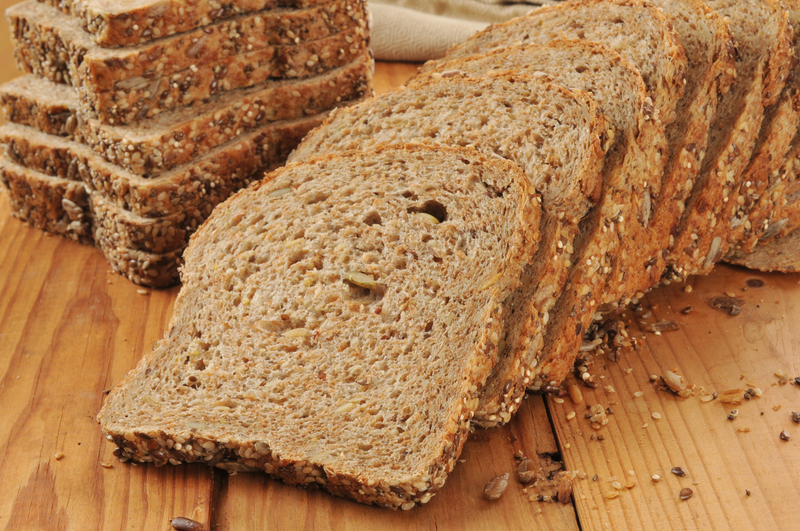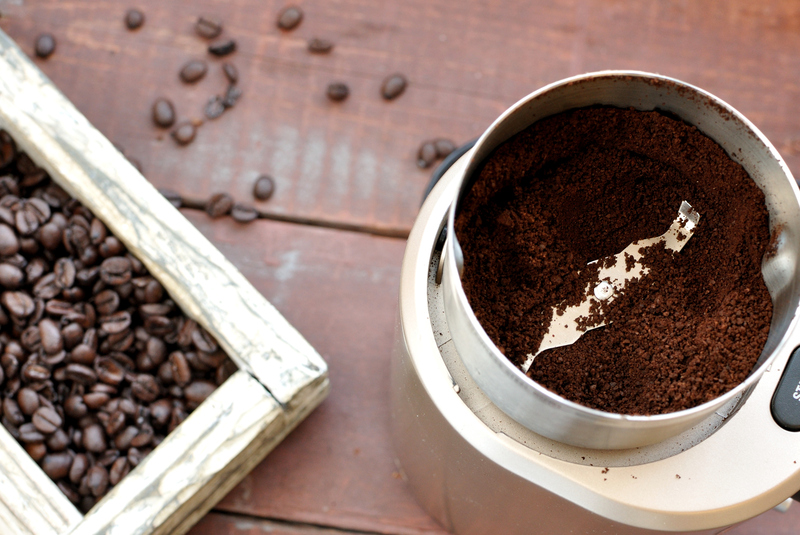Tips and Tricks for Eradicating Musty Odors in Your Home
Posted on 13/09/2025
Tips and Tricks for Eradicating Musty Odors in Your Home
Is your living space plagued by an unpleasant musty odor? These unpleasant smells are not just a sign of dirt but may indicate deeper issues such as mold growth, excess moisture, or lack of ventilation. In this informative guide, you'll learn proven tips and tricks for eradicating musty odors in your home for good. By understanding the sources and applying the right strategies, you can transform your home into a fresh-smelling sanctuary.
What Causes Musty Odors?
Understanding the root causes is crucial. Here are the most common reasons homes develop musty smells:
- Mold and mildew growth in hidden corners, under carpets, or behind walls.
- Excess humidity or poor ventilation in bathrooms, basements, and closets.
- Wet or damp fabrics such as towels, bedding, and clothes.
- Old carpet padding or water damage that hasn't been properly addressed.
- Neglected HVAC systems, filters, and ducts trapping moisture and dust.
Now that you know the main offenders, it's time to tackle the issue head-on with effective musty odor removal solutions.

Step 1: Identify and Eliminate the Source
Inspect Common Problem Areas
Start by locating the origin of the musty smell. Use your nose and eyes to examine:
- Basements and crawl spaces: Check for leaks, condensation, and water stains.
- Bathrooms: Inspect grout lines, under sinks, and around toilets for mold colonies.
- Laundry rooms and closets: Look for damp clothes or forgotten wet laundry.
- Attics: Check for roof leaks, insulation issues, or signs of animal infestation.
Remove Mold and Mildew
Mold is a leading cause of that musty smell in the house. Here's how to remove it safely:
- Wear Protective Gear: Always use gloves and a mask to avoid inhaling spores.
- Use a Cleaning Solution: Mix a solution of one part white vinegar to one part water, or use a commercial fungicide.
- Scrub Affected Areas: Apply the solution to the moldy area and scrub thoroughly.
- Dry Completely: Leave the area dry by increasing airflow or using a fan.
If mold returns or covers a large area, consult a certified mold remediation professional. Mold is not just a source of odor but also a potential health hazard.
Step 2: Improve Ventilation and Air Flow
Stuffy, stagnant air promotes the development of musty odors in the home. Optimizing ventilation is essential:
- Open Windows and Doors regularly to boost air exchange.
- Use exhaust fans in bathrooms and kitchens when cooking or showering.
- Install or upgrade dehumidifiers in areas with high moisture.
- Circulate air using ceiling or oscillating fans.
- Keep closet doors ajar and avoid overpacking to allow air to move freely.
Pro tip: Place a ventilator or a window fan in your basement to expel stagnant air and reduce humidity - this can make a significant difference in removing musty basement odors.
Step 3: Tackle Moisture and Humidity Problems
High humidity is the silent culprit behind persistent musty odors. Keep your home's relative humidity between 30% and 50% to discourage mold and mildew.
Dehumidify Key Spaces
- Place a dehumidifier in problem rooms such as basements, bathrooms, or laundry rooms.
- Use moisture absorbers (like silica gel packets, baking soda, or charcoal sacks) in closets or small areas.
- Fix plumbing leaks and seepage to cut off moisture sources.
- Insulate cold water pipes to reduce condensation.
Regularly empty and clean your dehumidifier to maintain efficiency and further reduce musty smells in your house.
Step 4: Deep Clean Fabrics and Soft Surfaces
Fabrics soak up moisture -- and odors -- with ease. Here's how to keep them fresh:
- Wash curtains, bedding, and cushion covers regularly in hot water and allow them to dry fully in the sun.
- Shampoo or steam clean all carpets and rugs at least twice a year.
- Air out pillows, throws, and upholstered furniture outdoors to freshen them up.
- For stubborn odors, sprinkle baking soda on carpets and let it sit before vacuuming.
Never allow laundry to sit damp in the washing machine or laundry basket. Fast action reduces the risk of mold growth and musty laundry smells!
Step 5: Clean and Service Your HVAC System
Your home's heating and cooling system could be harboring musty air. To prevent the spread of odors, follow these steps:
- Replace air filters every 1-3 months according to the manufacturer's instructions.
- Hire a professional to clean the air ducts and vents if you notice persistent smells.
- Check the drain pans and coils for mold and clean as needed.
- Set your air conditioner to "auto" mode to consistently move air and prevent stagnation.
Maintaining your HVAC system is one of the most overlooked yet effective tips for eliminating musty air in the home.
Step 6: Natural Remedies and Odor Absorbers
If you're sensitive to harsh chemicals, nature offers plenty of options to remove musty odors:
- Baking Soda: Place bowls around the house to neutralize odors.
- White Vinegar: Set out bowls or spritz diluted vinegar in musty areas.
- Activated Charcoal: Use charcoal bags as a powerful natural odor absorber.
- Coffee Grounds: Fill a container with fresh coffee grounds and leave it in musty spaces.
- Essential Oils: Add a few drops of tea tree, eucalyptus, or lavender oil to a diffuser to impart a fresh scent.
These natural odor eliminators are safe, affordable, and effective for ongoing control of musty smells at home.
Step 7: Regular Maintenance and Prevention Strategies
Prevention is the key to long-term musty odor eradication. Incorporate these habits into your cleaning routine:
- Inspect plumbing and under sinks monthly for leaks or water stains.
- Clean the refrigerator drip pan and check for condensation or food spills.
- Declutter storage areas so air circulates freely around stored items.
- Rotate and air out stored clothing or linens at least once a season.
- Repair cracked window seals or damaged foundations promptly to prevent water intrusion.
Routine maintenance minimizes the chances of odors taking hold and helps you catch potential issues before they worsen.
Bonus: Musty Odor Removal Mistakes to Avoid
- Masking with air fresheners instead of identifying the source. Air fresheners only conceal the odor temporarily.
- Ignoring small leaks or damp patches. Even minor moisture can fuel mold growth if ignored.
- Carpet cleaning without thorough drying. Damp carpets can worsen the problem.
- Skipping air filters and vent cleaning. Dirty filters encourage recirculation of stale, musty air.
When to Call a Professional
If the musty odor persists despite following all of these tips and tricks, it may signal a more serious problem such as:
- Deep-seated mold infestation behind walls or under foundations.
- Chronic, hard-to-locate leaks or structural issues.
- Health symptoms (such as allergies or respiratory issues) due to indoor air quality concerns.
In these cases, consult a licensed mold remediation, plumbing, or HVAC specialist to protect your health and investment in your home.

Frequently Asked Questions About Musty Odors
-
How do I permanently remove musty smells from my home?
Identify and eliminate moisture sources, clean or replace items affected by mold, upgrade ventilation, and use odor absorbers. Regular home maintenance is essential for long-term results. -
Why does my house smell musty after it rains?
Rain can seep into basements, crawl spaces, or poorly sealed areas, promoting dampness and mold. Check weather sealing and manage indoor humidity to prevent post-rain mustiness. -
Are musty odors dangerous?
Strong or persistent musty smells may indicate mold growth, which can affect health, especially for those with allergies, asthma, or weakened immune systems. Take action to eliminate odors and address any health concerns. -
Can an air purifier help with musty smells?
Yes -- air purifiers with HEPA filters or activated carbon can help trap mold spores and reduce musty odors, but they work best when the root cause (moisture and mold) is addressed.
Conclusion: Restore Freshness and Comfort to Your Home
By applying these tips and tricks for eradicating musty odors in your home, you can enjoy a cleaner, healthier, and more welcoming living space. Remember, musty odors are a symptom -- not the problem itself. Eliminate the source, maintain dryness, and ensure good airflow for long-lasting freshness. Your nose, your lungs, and your guests will thank you!
For more expert advice on removing odors and optimizing indoor air quality, bookmark this page and explore our blog for additional home care tips.
Latest Posts
Breathe Smart: Air Quality's Hidden Influence on Mental Clarity and Wellness
Secrets to Effortless and Efficient Window Cleaning
Revitalize Your Sofa Covers: Wash Without Worry of Damage
Tenants' Toolkit: Navigate End of Tenancy House Cleaning with Ease



